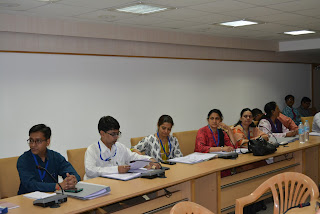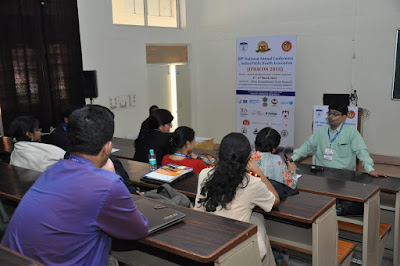Nadiad Medical Association has invited me as Chief guest of function installation ceremony of new team. few photos of same
Speech at Nadiad Medical Association (NMA) on 16th October 2016 on occasion of installation ceremony of new team of NMA
Speech at Nadiad Medical Association (NMA) on 16th October 2016 on occasion of installation ceremony of new team of NMA
Dear Dignitaries on the dais and off the dais. First I like to give my deep
feeling of thank you to call me on this great occasion of installation ceremony
of new team of NMA. I am wishing very best wishes to Dr. Deepak Patanwadia who
is now President of Nadiad Medical Association. This is a great opportunity to
talk with my fellow medical doctors.
On this occasion, my speech was made very simple by
background speech of installation officer. He has rightly pointed out the issue of
lifestyle disease in community and even among doctors. And second point he
raised about incorporation of doctors in consumer protection act. I will like to share my views on both
important topics.
Changing lifestyle is most common and acceptable phenomenon
at world level and we cannot be spared out of it. In this scenario we need to understand
the World Health Organization definition of Health. Health is a state of
physical, mental and social wellbeing, not merely absence of disease. So we
need to understand the importance of three aspects of health, not only physical
health which we as doctors are looking; but social and mental health which is
also equally important. As association, what I observing since evening and post
dinner function, that we are quite social and we are doing many social gathering
at association level. This is very good sign of social health. As a community
physician I have special interest in social health. As you know i did wrote a
textbook on “Sociology and Health for Health Professionals”. Similarly we need
to keep in mind when patient setting in front of us at OPD about his social
health. We shall also focus on preventive and promotive health at various
levels. It will be of great health to community compare to curative health. You
must agree with me that during latter half of private practice majority of
doctors become preventive physician and focusing more on preventive and
promotive aspects. But see we are community physicians who are practicing preventive
medicine at young age. That is one part.
Second about consumer protection act, it is sensitive issue and
we need to act collectively. Out practice should be so transparent that nobody
can pin point finger to us. The association level we need to strong and united
to fight if anything happen to profession.
On this occasion, i like to congratulate to Dr. Deepak for
taking theme of “Global warming” and related activities to focus for next one
year. It is right time to take such theme, as carbon emission is increasing
like anything. There are lots of our activities which increasing carbon
emission, simple example our mobiles in pocket, it is also emitting carbon at
great level. So awareness and sensitization programme for global warming, will
play large dividend to our generation next.
With this I again
like to say thank you to NMA for this platform.
Thank you to all






















